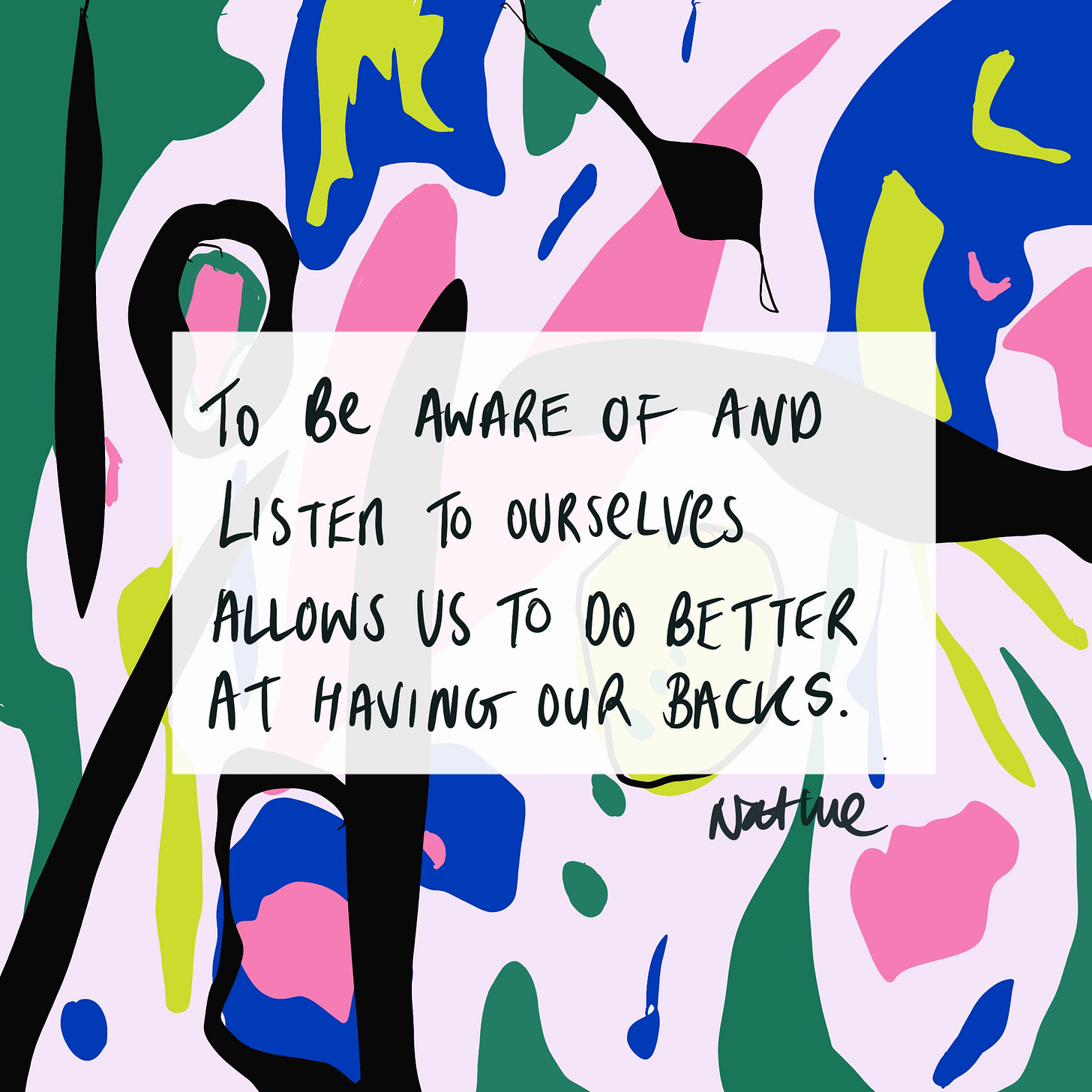My Younger Self Wishes Somebody Had Told Her How Helpful Self-Awareness Is
We don't learn about the importance of self-awareness because folks are too busy emphasising compliance. Thank goodness we get to learn now.
Growing up, much of the advice about how to ‘do’ life centred on being ‘good’ (read: compliant) and ticking the boxes of what society said would mean you’d arrived and were a happy and successful human. What I wish someone had said, though, is, ‘Hey, being self-aware is your golden ticket to making happier, healthier choices’.
Of course, that didn’t happen because self-awareness, so having a mindful, connected relationship with yourself that allows you to know your feelings, intentions, and values, is the antithesis of compliance. Instead, as is the way with adulthood, I’ve been unlearning what I’ve internalised so I can become more of who I really am. After almost twenty years of intentional trial and error and helping others tune into themselves, I recognise several markers of self-awareness that act as guardrails for me to check in with myself. Hopefully, they will help you too.
Do you say no when you need or want to?
When you know your ‘no’, you know your ‘yes’. It’s unrealistic to expect to always get your yes or no “right”, but learn from experiences and apply this intel to your future ones. If you don’t say yes authentically, you say it resentfully, fearfully and avoidantly, and that leads to far more problems than if you’d just said no in the first place.
Can you forgive yourself? Are you allowed to make mistakes? Do you allow yourself to learn and grow?
Your ability to self-forgive is a measure of how much perspective and healthy boundaries you’ve gained about the event that caused you to be angry, hurt, and/or disappointed. If you have people pleasing, including perfectionist, overthinking, overgiving and over-responsible, inclinations, you likely put pressure on yourself to move on from stuff with others while transferring what didn’t get expressed onto yourself. You’re also likely to feel wounded by mistakes. Next thing, you’re bulldozing ahead to hide the mistake or beating you over the head with it.
Being hard on yourself in the way you learned from someone else isn’t ‘loyalty’ or a sign of goodness or self-discipline; it’s a pattern that blocks you from having an honest, intimate relationship with yourself.
Do you take care of yourself?
When you take action and make choices from a place of considering instead of ignoring yourself, you create healthier boundaries. In being socialised and conditioned to be excessively compliant, particularly with authorities, we became disassociated from our nos, boundaries and bodies. It’s why we wake up knee-deep in adulthood and are sometimes unsure of what we need, desire, expect, feel, and think. Taking care of ourselves in this modern age often means overriding our default setting of putting everyone else’s needs ahead of ourselves.





